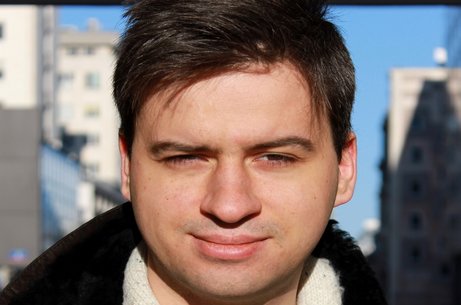
Gates Cambridge Alumnus Jakub Szamalek has been named one of the top 100 leaders of innovation in Central and Eastern Europe.
A Gates Cambridge Alumnus has been named one of the top 100 leaders of innovation in Central and Eastern Europe.
Jakub Szamalek is on the list of New Europe 100 created to promote innovation in Central and Eastern Europe by distinguishing those who are “the engine of positive change”. The list was compiled by Res Publica, in cooperation with the Visegrad Fund, Google and the Financial Times, as well as dozens of institutions from Central and Eastern Europe.
Candidates for the New Europe 100 list included people and teams that use new technologies in their industries and whose activities have a positive impact on the economy, science, culture and local communities. They were nominated by organisers of the project and a group of nomination partners, including research centres, public authorities, non-profit organisations and experts from every country in Central and Eastern Europe.
Jakub [2009], who did a PhD in Classics, is a senior writer at CD Projekt Red where he works on new video games. He was nominated “for taking our imagination to the next level”. The games Jakub has worked on include The Witcher, which is based on a book series by Polish science-fiction cult author Andrzej Sapkowski. It is described as one of the most successful Polish products of this type. The third part of the game, titled The Witcher 3: Wild Hunt, will be released by CD Projekt Red in February. Its complex plot was created by five writers, including Jakub. As a senior writer at CD Projekt Red, he is responsible for the design of the story, quest and dialogues.
Jakub himself has also published two crime novels taking place in ancient Greece: Kiedy Atena odwraca wzrok (When Athena Looks Away) and its sequel Morze Niegoscinne (Inhospitable Sea). Both books received critical acclaim in Poland.
Wojciech Przybylski, editor of Res Publica Nowa and organiser of the New Europe 100, said: “We have been working on the list for nearly a year. We were interested in innovators of different professions who decide today how to shape tomorrow. Thanks to them we have discovered that despite of stereotypes, our region has a lot to offer. It can be even said that the culture of start-ups has been blooming here for the last 25 years – the time, when Central Europe had started from the scratch and it’s still on the rise today.”












